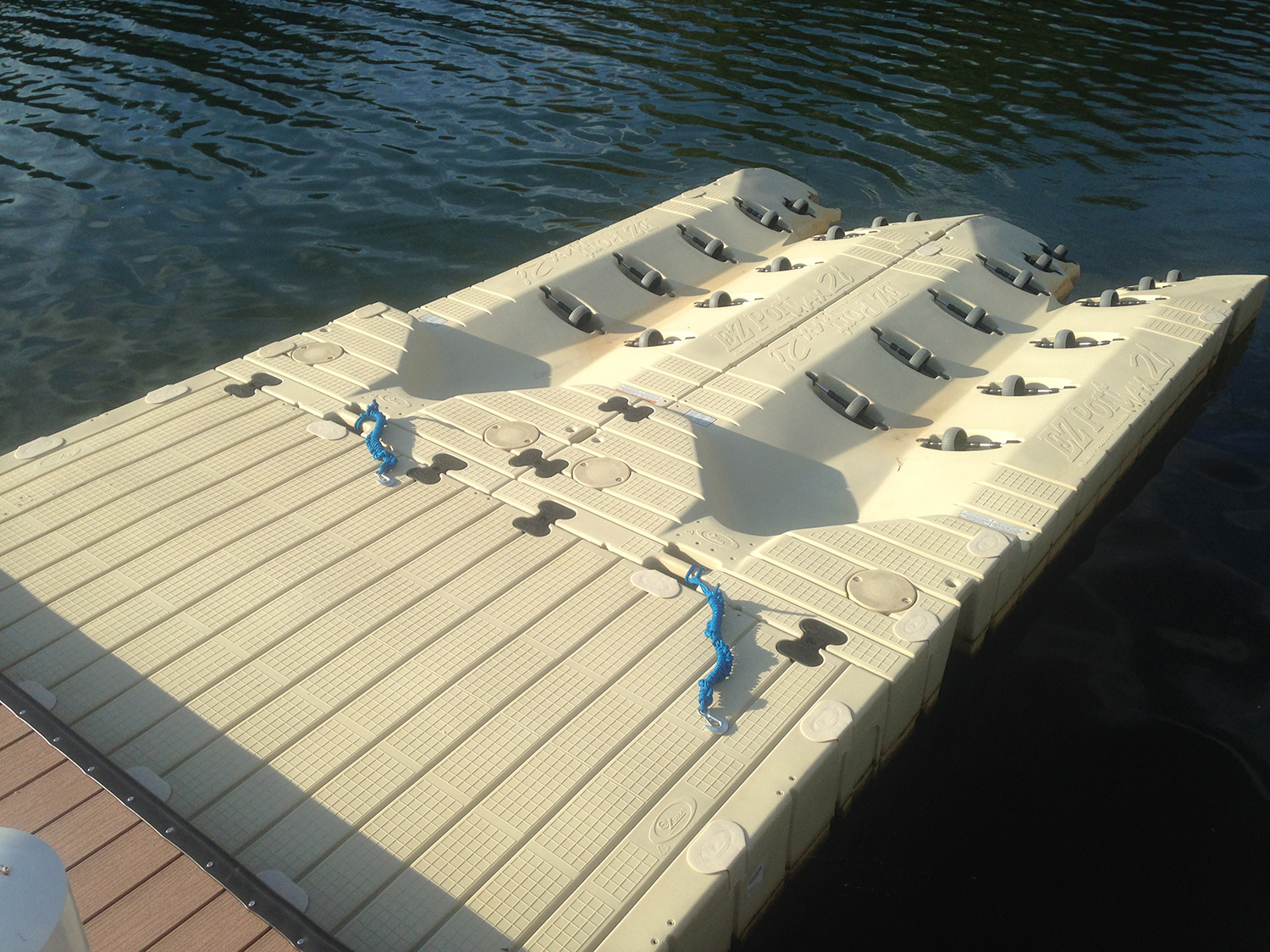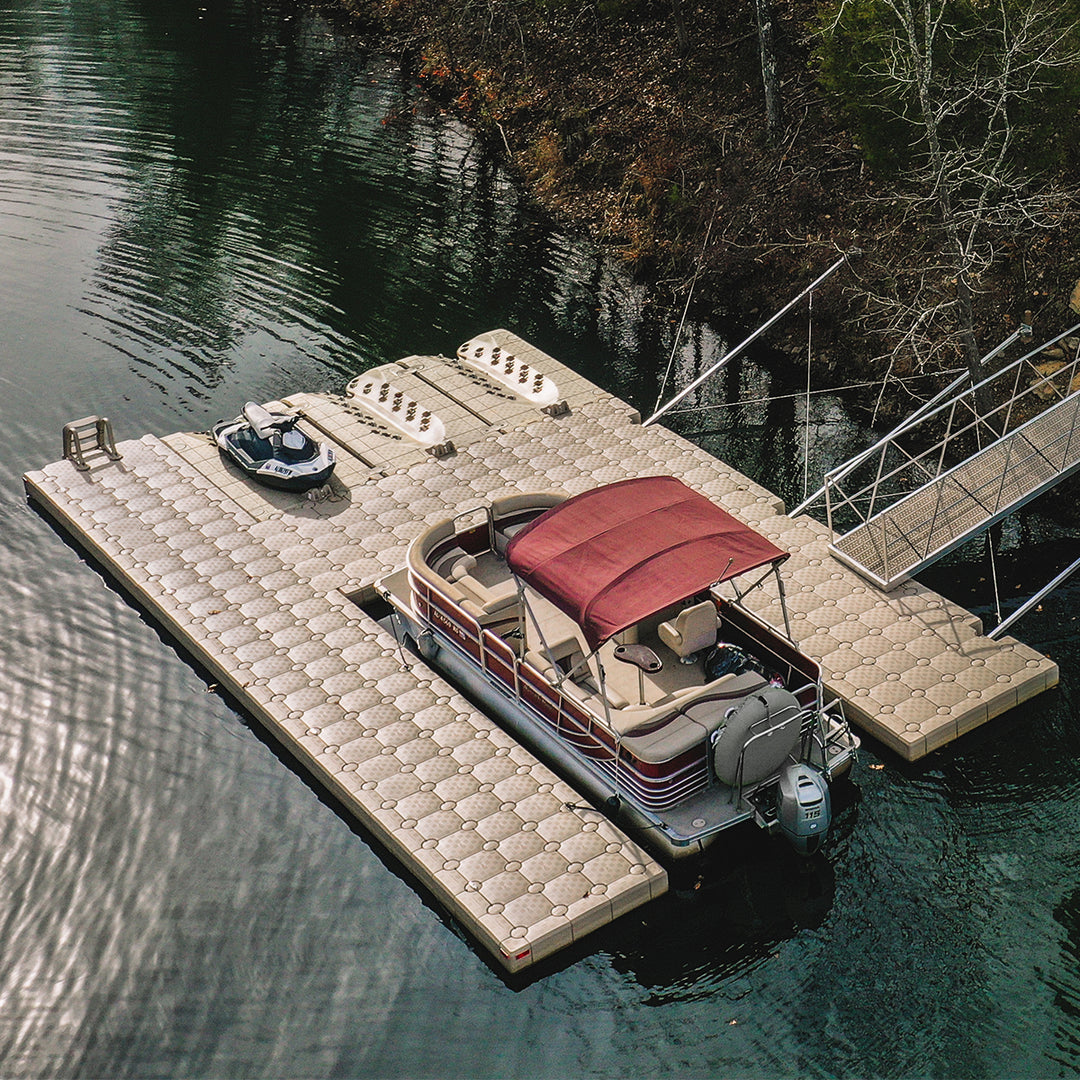Navigating the Options: Picking the Right Dock Company for Your Floating Dock Project
Floating Docks: The Ideal Selection for Versatile Water Gain Access To
Floating docks present an engaging option for a variety of water gain access to requires, supplying flexibility that transcends standard mooring alternatives. The modular nature of floating docks helps with customization, catering to specific needs.
Benefits of Floating Docks
Floating docks deal many advantages that improve water accessibility for various applications. Their ability to drop and climb with altering water levels makes them particularly useful in atmospheres with varying trends or seasonal variants. This adaptability makes certain that vessels can quickly moor without problem for the water's depth, providing a dependable system for leisure, commercial, and commercial uses.
Furthermore, floating docks are usually built from sturdy materials that withstand deterioration, making them suitable for lasting use in aquatic environments. Their setup is typically less intrusive than traditional fixed docks, lowering the ecological impact and promoting quicker deployment (floating dock services). This adaptability permits less complicated relocation or reconfiguration according to user requirements or ecological changes
Safety is another key benefit; floating docks can supply secure access for individuals disembarking or boarding from watercrafts and minimize the threat of crashes linked with unpredictable surface areas. In addition, they can be created to suit a range of devices, such as fenders and cleats, improving performance. Generally, floating docks stand for an efficient option for improving water access throughout varied fields while promoting safety and security and environmental sustainability.

Kinds of Floating Docks
Various kinds of floating docks accommodate different demands and atmospheres, each made with particular attributes to optimize capability. The most typical kinds include modular docks, which include interlocking sections that permit easy modification and expansion. These docks are excellent for recreational usage, as they can be customized to fit various watercraft dimensions and water problems.
Another prominent alternative is the stationary floating dock, which stays secured in place but drifts with altering water degrees. floating docks. This type is especially matched for locations with minimal tidal fluctuations, supplying secure accessibility for fishing or swimming. Furthermore, there are drive-on docks, which include a sloped layout that permits boats to easily drive on and off, making them appropriate for individual boat and smaller sized vessels
For commercial applications, heavy-duty floating docks are readily available, created from reinforced materials to hold up against significant loads and severe marine atmospheres. Green floating docks utilize sustainable materials and layouts to decrease ecological effect, commonly integrating functions like greenery to support local wild animals. Recognizing the different sorts of floating docks guarantees that individuals can pick one of the most suitable service for their certain requirements.
Setup Process Overview
An effective installment of floating docks requires cautious planning and focus to information to ensure optimum efficiency and security. The initial action includes evaluating the website conditions, consisting of water deepness, current, and possible obstacles. This analysis notifies the option of the proper dock materials and style tailored to the certain environment.
Following, obtaining essential permits is critical, as lots of jurisdictions have guidelines concerning building and construction on water bodies. The setup can continue once authorizations are secured. Begin by preparing the foundation, which might involve anchoring systems or pilings tailored to the dock kind and neighborhood conditions.
Adhering to the foundation configuration, construct the dock sections according to maker requirements. Guarantee that all elements are firmly fastened and lined up to stand up to ecological tensions. Setting the dock in the marked location, ensuring it is level and steady.

Maintenance Tips and Ideal Practices
After the installation process is complete, recurring upkeep plays a crucial function in making sure the durability and functionality of floating docks. Routine assessments ought to be conducted to identify any kind of indicators of wear, wear and tear, or damage - dock company. Look for any type of loose installations, fractures, or splitting up in the dock sections, as these can jeopardize architectural stability
Cleaning up the dock is vital to remove particles, algae, and other accumulation that can impact its look and security. Utilize a mild pressure clean periodically to keep tidiness without creating damage to the surface area. Furthermore, using a protective sealer every few years can help improve longevity and withstand environmental wear.
Take note of the mooring lines and anchors, ensuring they are free and safe from corrosion. Replace any kind of degraded elements promptly to prevent hazards. Seasonal modifications might also be needed; during severe climate conditions, reinforcing the dock or rearranging can protect against damage.
Applications for Floating Docks
Floating docks offer a multitude of applications, browse around this site catering to both entertainment and commercial demands. In recreational settings, they supply smooth accessibility to waterways for activities such as boating, fishing, and swimming. Their adjustable nature permits for installment in differing water levels, like it guaranteeing risk-free and secure access no matter tidal changes.
Readily, floating docks are crucial for marinas and waterfront businesses. They help with the docking of vessels, allowing effective discharging and filling of items. Their modular style enables very easy development or reconfiguration to suit transforming organization needs, making them excellent for watercraft services, scenic tour procedures, or angling charters.
Furthermore, floating docks are utilized in environmental applications such as marine study and environment reconstruction. They can offer as systems for scientific research studies, keeping an eye on water high quality, or carrying out wildlife surveys without troubling delicate ecological communities.
In commercial contexts, floating docks are employed in building jobs, providing accessibility to hard-to-reach locations for tools and workers. Their convenience, sturdiness, and minimal influence on the atmosphere make them an ideal selection for a variety of applications, boosting both functionality and availability in different water-based settings.
Verdict
In conclusion, floating docks stand for an optimum option for varied water accessibility requires, owing to their adaptability, longevity, and modular design. Floating docks serve as a beneficial asset for recreational, business, and environmental tasks, making certain trustworthy accessibility to waterways and promoting lasting practices in marine environments.
Floating docks present an engaging solution for a variety of water access requires, offering flexibility that transcends standard mooring choices.Floating docks offer many benefits that improve water gain access to for different applications. Generally, floating docks represent an effective service for boosting water access throughout diverse markets while advertising safety and environmental sustainability.
One more popular alternative is the stationary floating dock, which continues to page be anchored in location yet drifts with changing water levels.In conclusion, floating docks represent an optimal option for diverse water accessibility requires, owing to their versatility, longevity, and modular style.